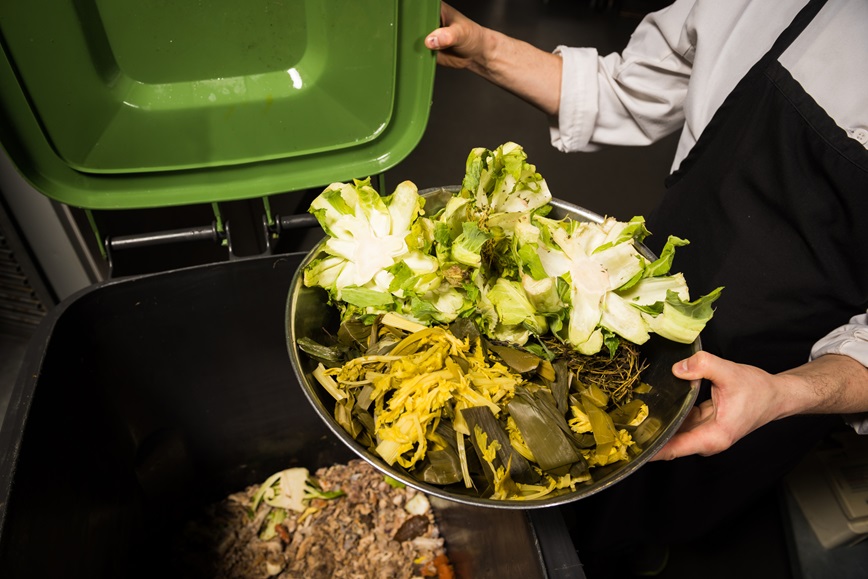Restaurant compost
Set up a composting program for your business.
Benefits to your business
Save money
By diverting food scraps, you can save money on State and County solid waste management taxes and fees.
Benefits can include:
- Getting a smaller garbage dumpster
- Having your dumpster picked up less often
Help the environment
- Each year, Minneapolis restaurants generate 35,000 tons or 30% of the city’s food waste.
- Composting food scraps helps return nutrients to the soil. This means residents and farmers can grow healthier, more nutritious food.
How to compost
We explain what to compost and how to get started.
What to compost
Commercial composting allows a business to divert food and items from the trash, including:
- Wasted food
- Food scraps
- Napkins and paper towels
- Certified compostable to-go containers
- Wooden chopsticks and stir sticks
How to start composting
- Hennepin County explains how to set up a composting program for your business.
- Most restaurants must divert food waste from the trash.
Video
Get help from Hennepin County
The County offers free technical help and grants to businesses. Learn how to reduce wasted food, donate food and compost with organics recycling.
Related links
Contact us
Minneapolis Health Department
Phone
Address
Public Service Building
505 Fourth Ave. S., Room 520
Minneapolis, MN 55415



